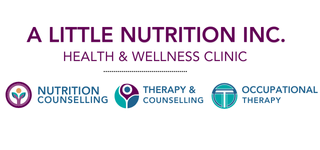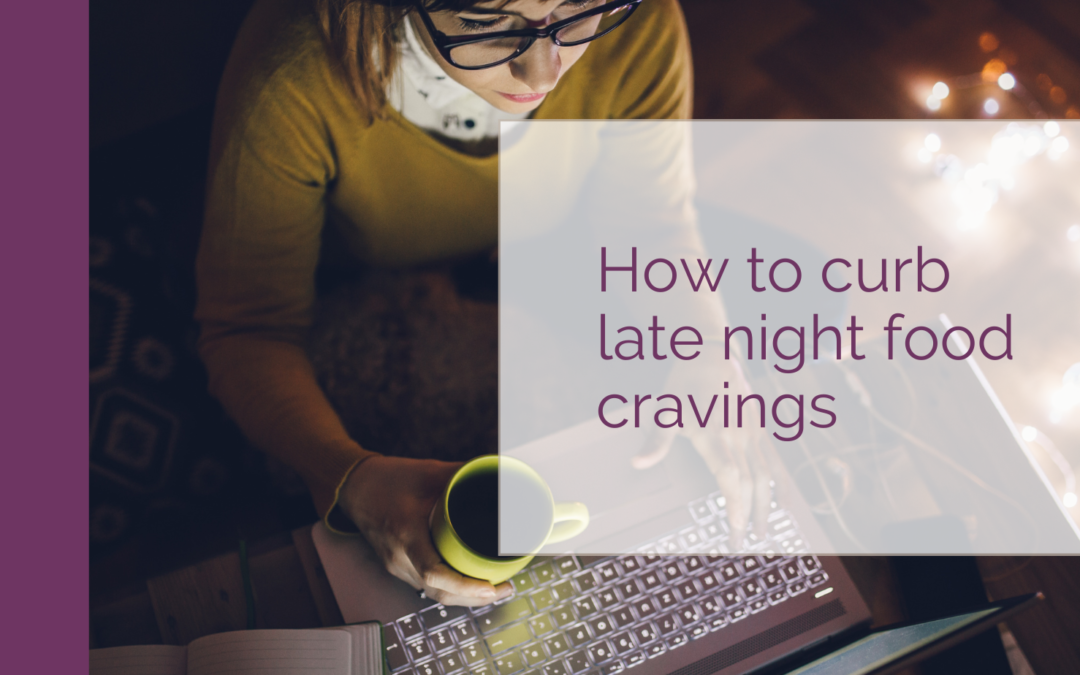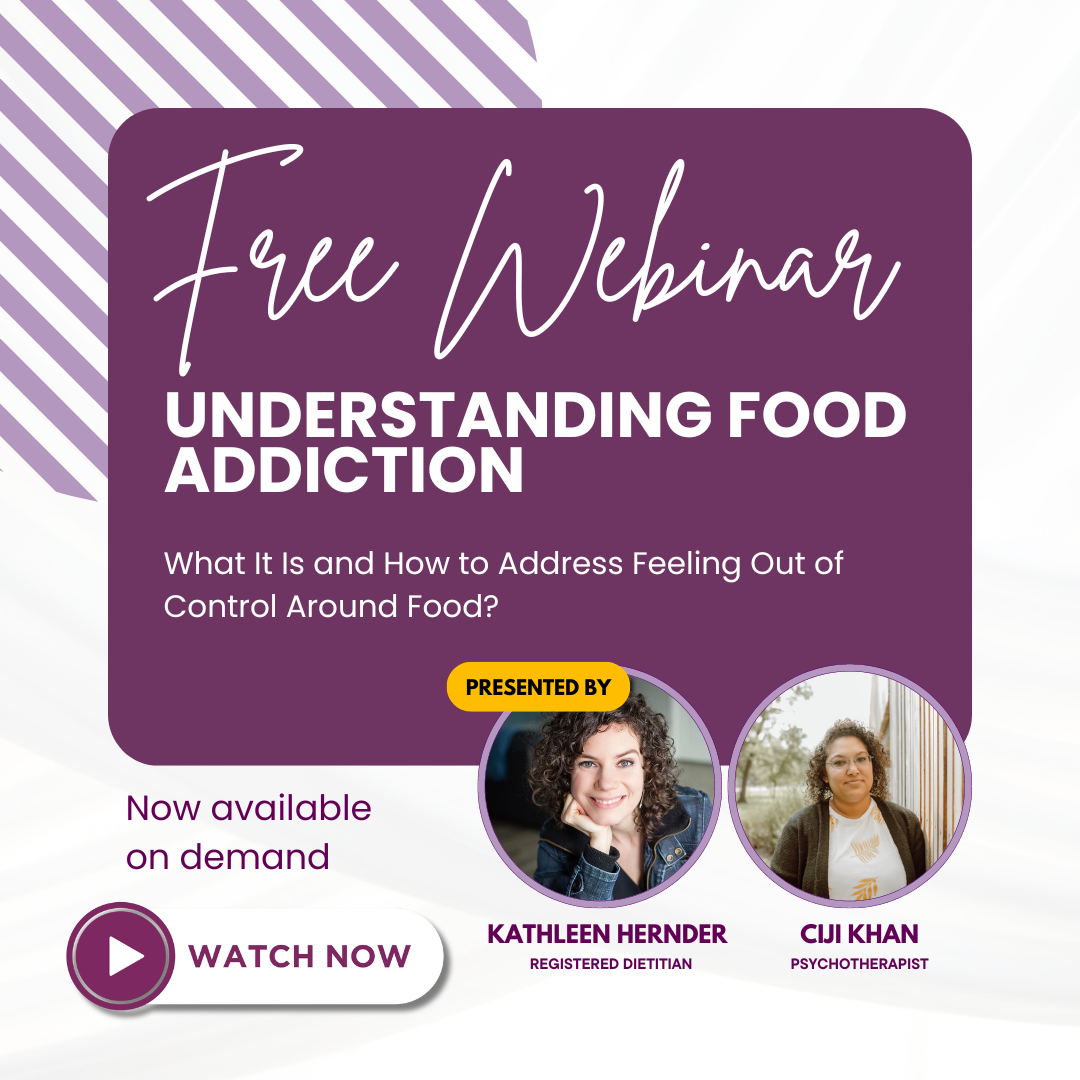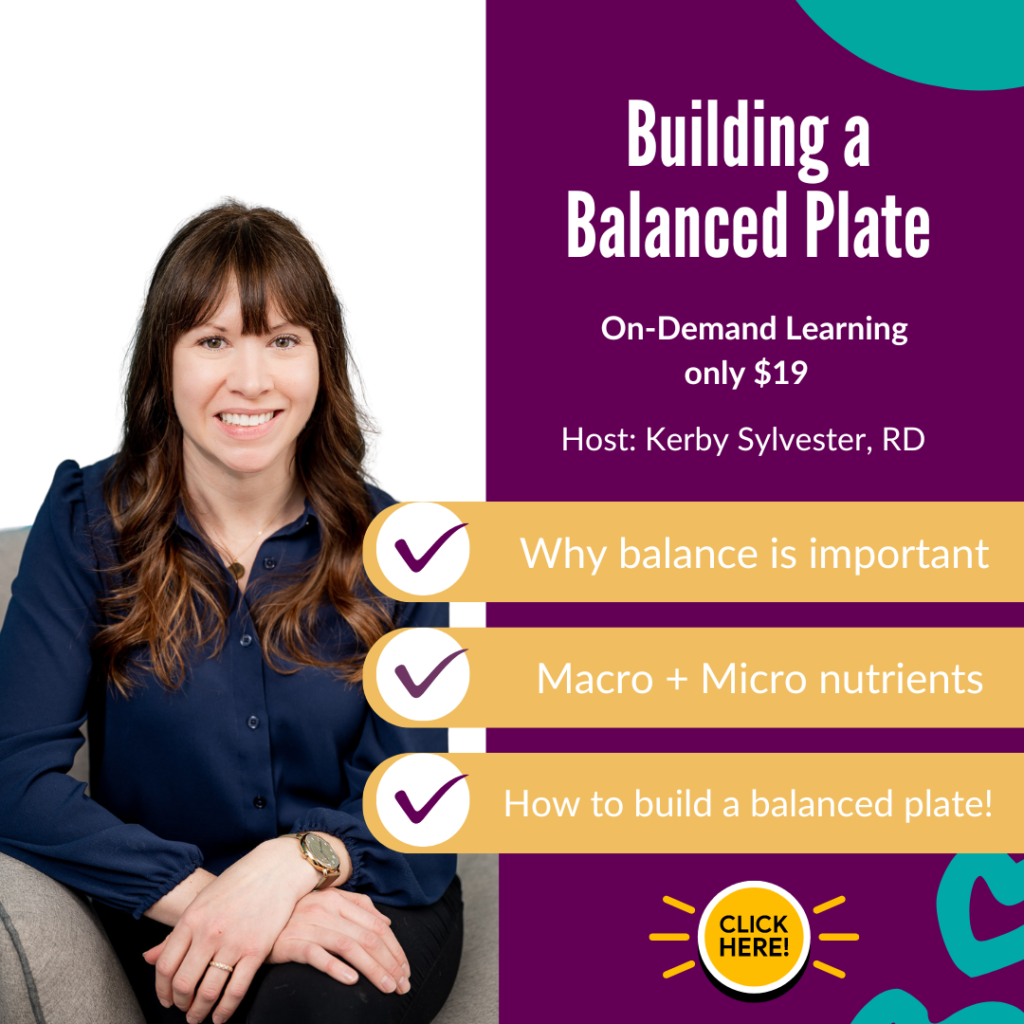Learn about what your body is telling you when you have a food craving!
Are late-night food cravings making you feel out of control?
If your answer is yes, then you’re not alone – many adults find themselves in a battle with nighttime eating. Never knowing when an intense craving will strike can create a lot of anxiety and stress in our lives. But it doesn’t have to be this way! Instead of seeing late-night cravings as something wrong that should be avoided or suppressed, try looking at them differently: as potential clues into what’s really going on beneath the surface. In this post, we’ll explore why late-night hunger pangs occur and how to work with them constructively instead of against them. Get ready to gain some insight into yourself while taking steps towards a peaceful relationship with food.
Let’s look at what food cravings actually mean.
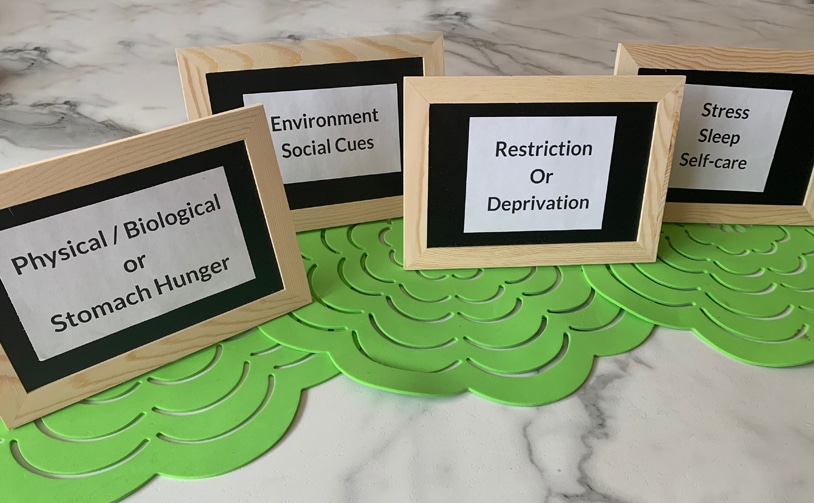
Cravings can be triggered by a number of factors
Physical or biological hunger
Physical or biological hunger, also known as stomach hunger, is the body’s way of telling us that we need to fuel it. This type of hunger can be brought on by going too long between meals, eating unbalanced meals that leave us feeling ravenous, or rebound hunger at the end of a stressful day when we haven’t eaten enough throughout the day. When this type of hunger presents itself, it can feel like an overwhelming craving for food. To avoid this type of hunger and cravings, it is important to fuel our bodies appropriately throughout the day by not skipping meals and making sure our meals are balanced with protein, carbohydrates, and fruits/vegetables.
Remember, food cravings are natural, and there is no “right” or “wrong” way to handle them. By approaching them with self-compassion and curiosity, we can develop a healthy and sustainable relationship with food.
Environment & social situations can trigger food cravings
The human senses, emotions, and social surroundings foster food cravings, indicating a complex interconnection between these factors and dietary preferences. A mere glimpse of delectable food on a TV show prompts a desire to savor that particular dish. Similarly, observing a colleague indulging in a palatable meal can fuel one’s own yearning for that food.
Moreover, habitual consumption of a snack while watching a favorite program strengthens the mind-food link, not founded on biological necessity for that food. To manage these cravings, it’s crucial to identify the source. Employing strategies such as a pause or distraction can reduce their intensity, as cravings often pass with time.
Restriction and deprivation
Avoiding certain foods or imposing strict dietary restrictions can often intensify your yearning for them. Have you ever denied yourself chocolate, only to succumb to binge eating it hours later? This proves that limiting yourself too much can backfire and lead to overindulgence. Rather than impose restrictions, it’s more effective to accept and make peace with your cravings. Over time, this will reduce their hold on you. While it may seem counterintuitive, consuming small amounts of the food you are trying to avoid can help you develop a sense of comfort around it and decrease your urge to binge.
Need help with this aspect of your nutrition, contact our team as we specialize in improving food relationship and making peace with food through intuitive eating. https://www.alittlenutrition.com/intuitive-eating/
Stress, sleep, and self-care
Stress is a very strong trigger for food cravings. Food cravings are actually a natural response to stress, but it is how we manage it that can make an impact. In response to stress, our body unleashes hormones that make us crave high-fat, sugary comfort foods. These hormones increase appetite and motivation to eat. If we are constantly stressed then it is really hard to manage food cravings. The best thing is to manage your stress better. Take on fewer tasks and commitments. Make more time for yourself. Seek help for stress management if you are finding that you can’t manage it on your own.
Sleep Habits and Self-care
When we are tired food cravings set in. If you are going to bed late, you need to focus on improving self-care around sleep. Having good sleep habits is just one very important self-care step, but one that can dramatically improve your evening eating. Implementing a reasonable sleep routine is important if you want to get on top of your food cravings.
Two hormones that help regulate hunger—ghrelin and leptin—are affected by sleep: Ghrelin stimulates appetite, while leptin decreases it. When the body is sleep-deprived, the level of ghrelin spikes, while the level of leptin falls, leading to an increase in hunger.
Need help with your food cravings? We can help!
We offer solutions to your nutrition and health concerns through nutrition counseling. You can meet in person with a dietitian at our Winnipeg Nutrition Clinic located in St. Boniface you can meet with us virtually by video conferencing or phone.
We specialize in family + pediatric nutrition, intuitive eating + relationship with food, disordered eating, digestive health issues, vegan /plant-based nutrition, and improving health concerns like diabetes, hypertension, and high cholesterol.
For more information on meeting with a dietitian, please call our office at 1-204-515-7466 or book an appointment with a registered dietitian for nutrition counseling here >>> https://alittlenutrition.janeapp.com/
Note: We also offer direct billing to all medical insurance providers. Check your benefits to see if you have a registered dietitian listed as a benefit on your plan!
Complementary Services = To support your nutritional health we also have complementary care counselling/therapy and occupational therapy services.
